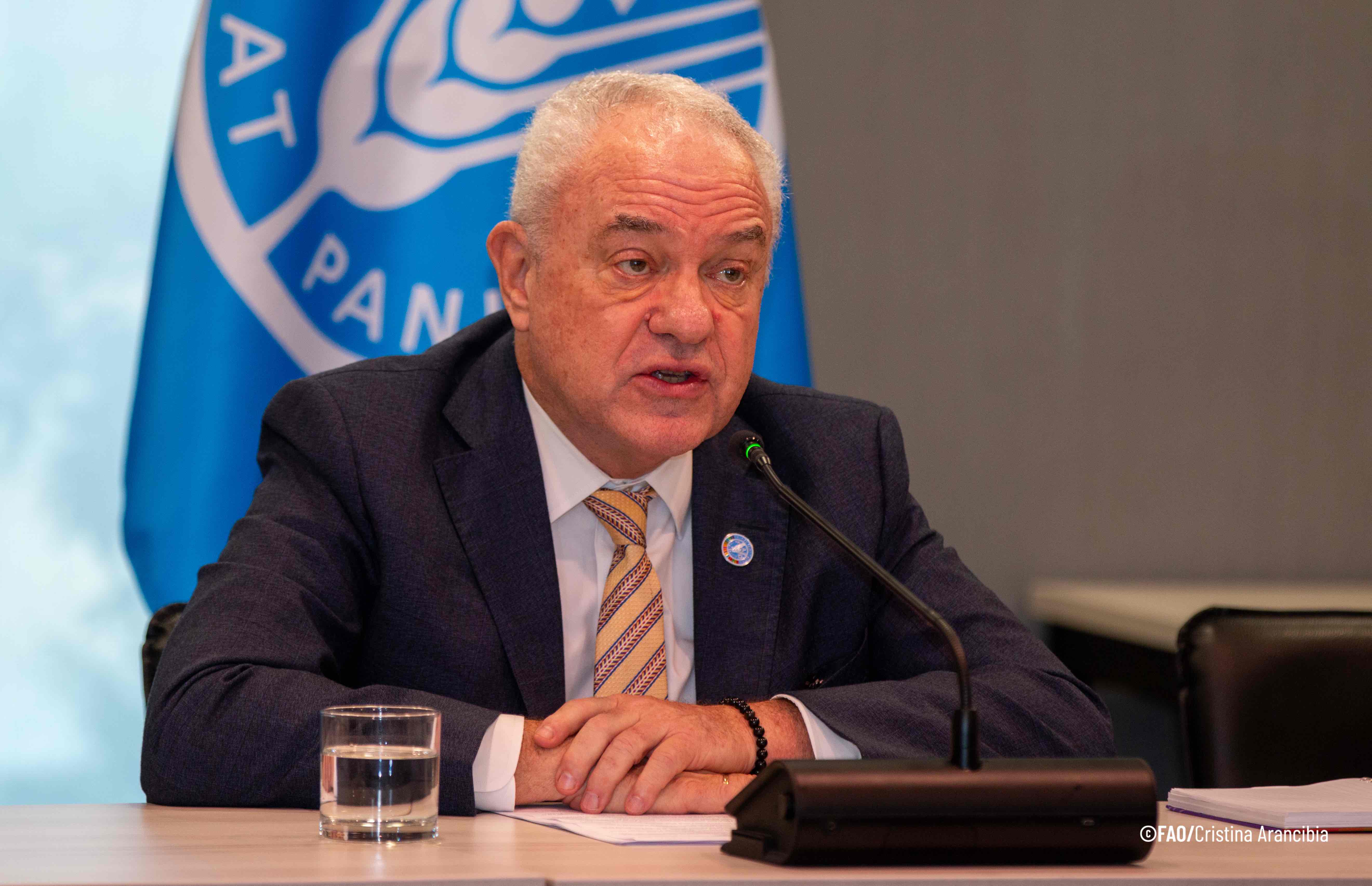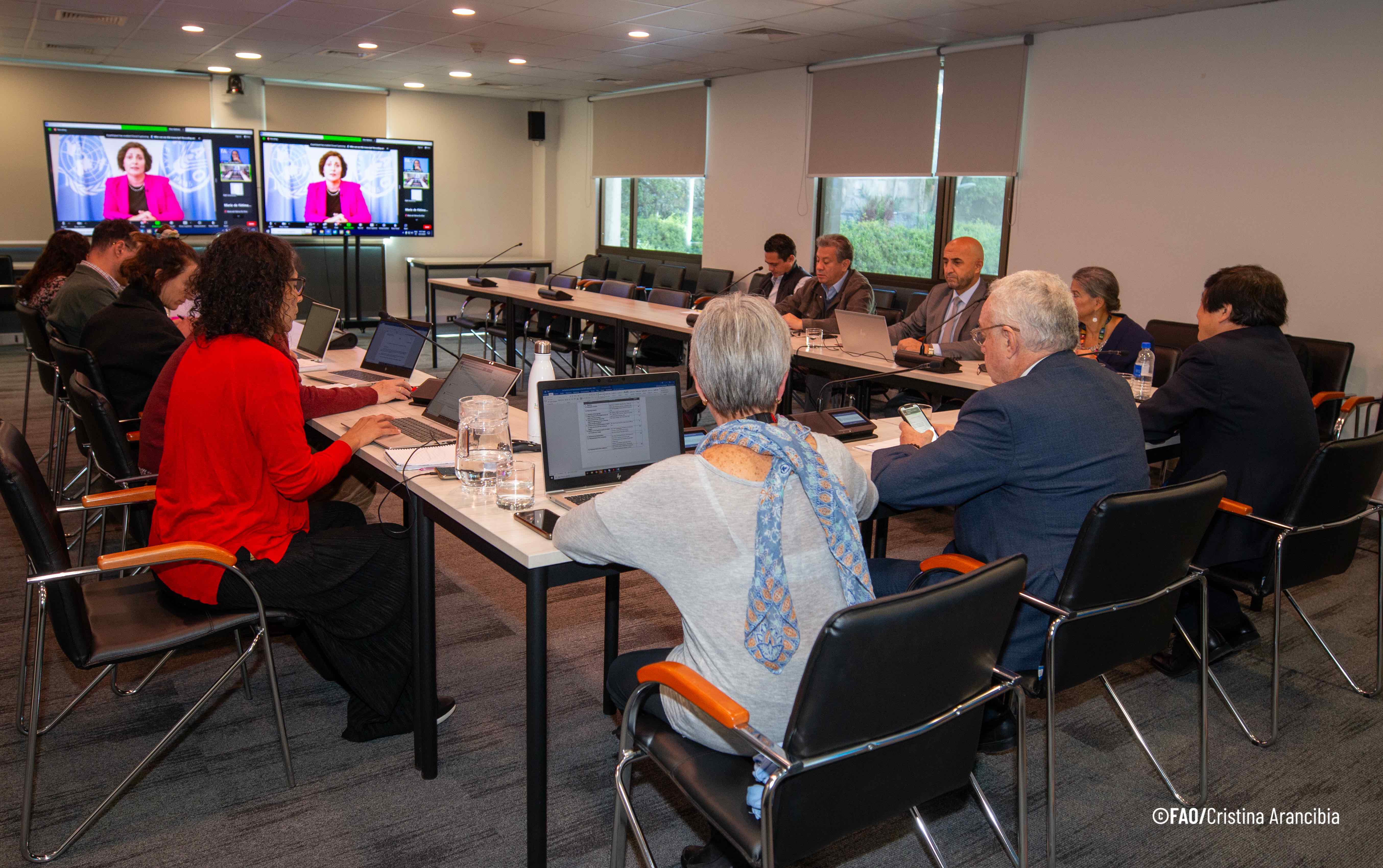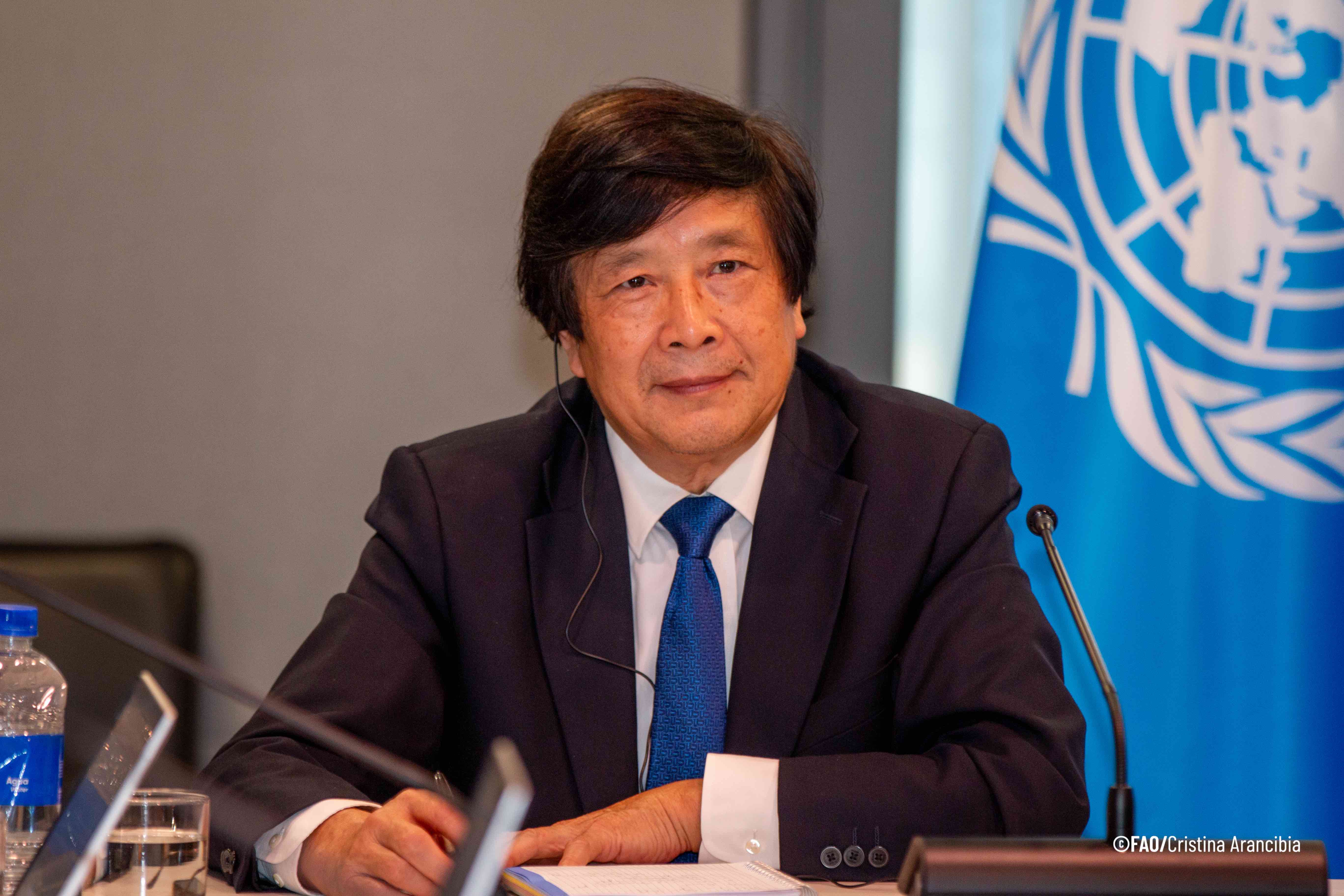News
FAO Regional Organizing Group for the One Country One Priority Product Initiative holds its first meeting in Latin America and the Caribbean

First meeting of the FAO Regional Organizing Group for the OCOP in Latin America and the Caribbean
©FAO/Cristina Arancibia
Santiago, 31 August 2023 – The first meeting of the Regional Organizing Group (ROG) for the One Country One Product (OCOP) initiative in Latin America and the Caribbean is held to coordinate and facilitate the successful and impactful implementation of the OCOP in the region.
The ROG was welcomed and chaired by Mr Mario Lubetkin, Assistant Director-General, FAO Regional Representative for Latin America and the Caribbean (RLC). "It is expected that this initiative will allow the Special Agricultural Products selected by the 14 countries in the region to be positioned in global markets for their heritage relevance, their high commercial and nutritional value and their contribution to climate change adaptation and mitigation," said Mr Mario Lubetkin.
 |
Mr Mario Lubetkin, FAO Regional Representative for RLC providing welcome remarks ©FAO/Cristina Arancibia |
Ms Beth Bechdol, FAO Deputy Director-General provided the opening remarks and emphasized the importance of establishing a strong regional coordination mechanism for making the OCOP a success. She indicated that OCOP seeks to contribute to the development of sustainable value chains of the Special Agricultural Products (SAPs) that have unique qualities and characteristics associated with geographical locations, agricultural practices and cultural heritages. Ms Beth Bechdol also mentioned that some of these products are linked with the ancient history of the countries in the region. For instance, quinoa and amaranth respectfully represent the unique agricultural civilization of the Mayans and Aztecs. Potato and cocoa represent the crops with the center of origin and diversity in Latin America. The selected SAPs also include the introduced crops such as coffee.
 |
Ms Beth Bechdol, FAO Deputy Director-General providing her opening remarks remotely from the FAO headquarters ©FAO/Cristina Arancibia |
The Terms of Reference and the initial composition of the ROG were approved by the country representatives. OCOP has country ownership and a national task force.
The Terms of Reference and the composition of the ROG were discussed and endorsed at the meeting by the representatives of countries and key stakeholders who are actively engaged with the ROG, including Ms María de Fátima Da Silva, Parque Tecnológico Sartenejas de la Universidad Simón Bolivar, Venezuela; Ms Omaira Avila, Caribbean Research Institute, Belize; Mr Martin Mena, Alliance of Bioversity International and CIAT. Central America Office. Nicaragua; Mr. Carlos Mayorga, General Manager of FEDEPANELA, Colombia, and Mr José Tulio Gonzalez Escamilla, President of ANACAFE, Guatemala. Under the ROG, a Regional Working Team (RWT) is established led by Ms Ana Posas, Agriculture Officer and the OCOP Regional Focal Point, FAORLC, to coordinate the daily activities.
Mr Jingyuan Xia, Director of Plant Production and Protection Division, FAO (NSP) updated on the progress in the global implementation of the OCOP and marked a significant milestone in advancing the initiative. Ms Ana Posas reported on progress and activities in the region and Mr Path Umaharan, Professor of Genetics, Director, Cocoa Research Centre, updated on the OCOP implementation progress in Trinidad and Tobago.
 |
Mr Jingyuan Xia, NSP Director updated on the progress in the global implementation of the OCOP ©FAO/Cristina Arancibia |
The ROG’s main objective is to work closely with the OCOP project countries in the region through their respective National Task Forces and support the OCOP Steering Committee established at FAO headquarters. The ROG is also aimed at sharing and exchanging knowledge, practices, and lessons learned from OCOP activities at regional and national levels.
Background and context about the OCOP approach to agrifood system transformation
The OCOP Initiative was launched in September 2021. OCOP is closely aligned with FAO's Strategic Framework for 2022-2031 and aims to foster inclusive, profitable, and environmentally sustainable agrifood systems by focusing on the sustainable development of Special Agricultural Product (SAP) value chains. The OCOP Initiative prioritizes five key areas: (1) increasing productivity and ensuring healthy diets; (2) reducing food loss and waste while protecting biodiversity; (3) optimizing water usage and land utilization; (4) minimizing agricultural chemical inputs; and (5) addressing climate change. With concrete action in these areas, the OCOP initiative strives to develop more sustainable value chains for SAPs as a catalyst for the wider transformation of agrifood systems for the benefit of FAO member states. This approach aims to bolster food security, improve farmers' livelihoods, drive economic growth, and safeguard the environment and biodiversity.
FAO launches One Country, One Priority Product in Latin America and the Caribbean
A dynamic FAO Regional Launch and Workshop on the Implementation of OCOP Country Projects was held in Trinidad and Tobago
One Country One Priority Product (OCOP) webpage
Trinidad and Tobago workshop sets out project to invigorate their cocoa sector
